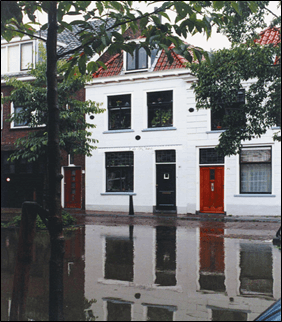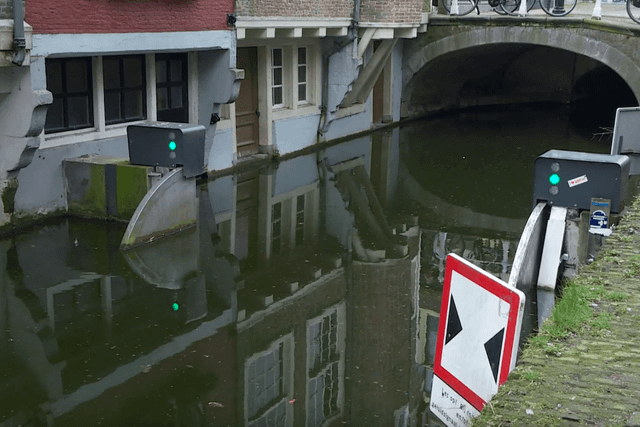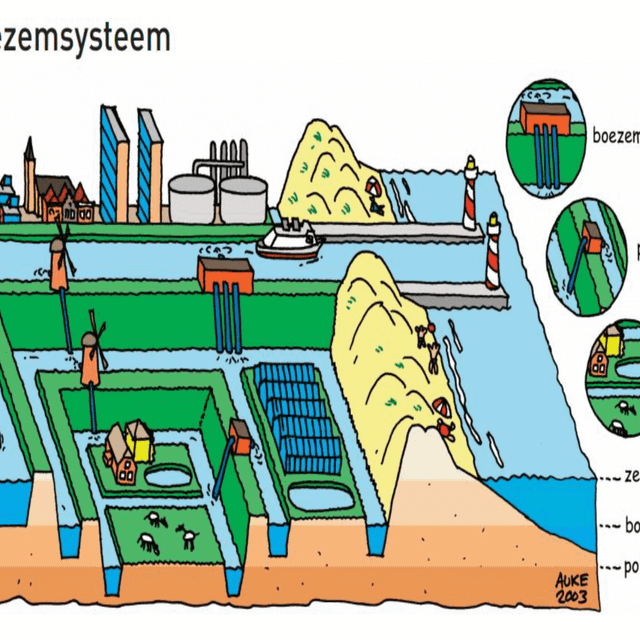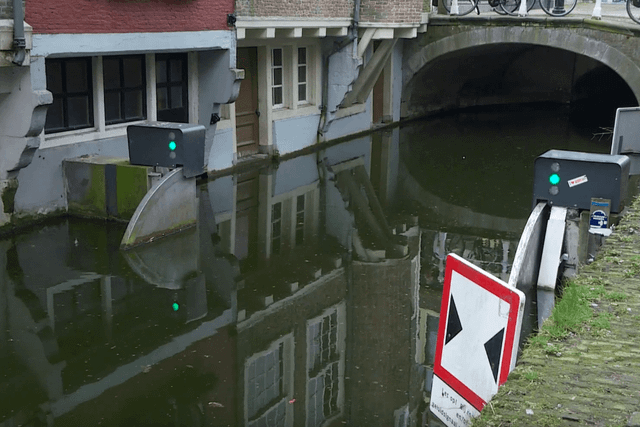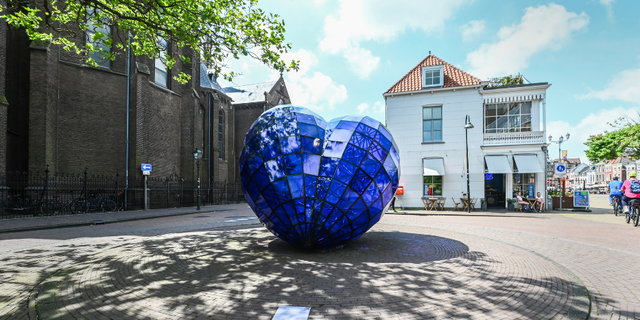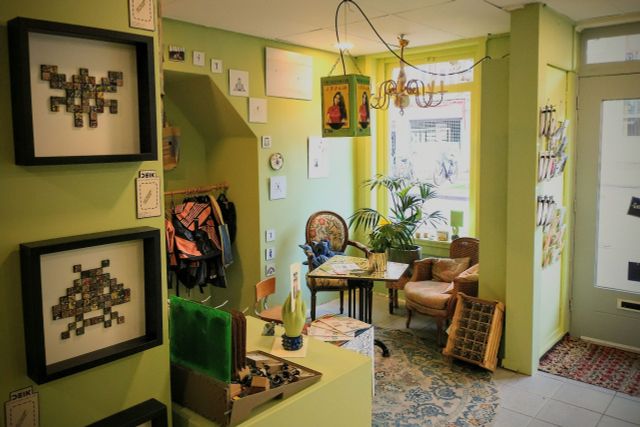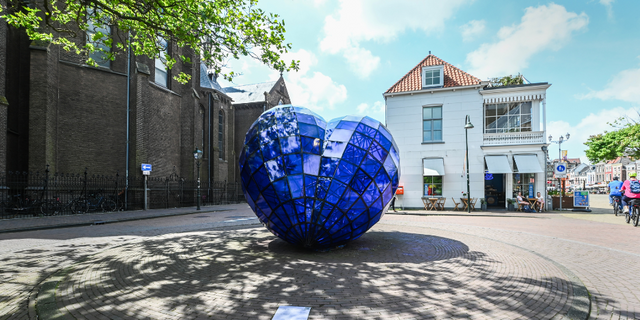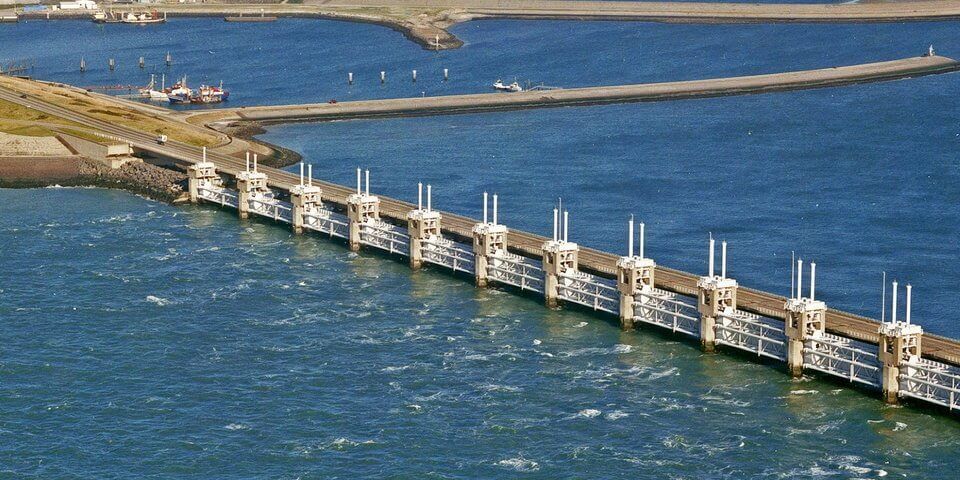
Onthe way to point 4 Water Authority - Walkingroute Waterways
Water authorities make sure the water in our canals, rivers, lakes and streams is clean.
The tasks of the water authority
During heavy rainfall the pumps pump the water out to the North Sea or the Nieuwe Waterweg. If we did not do this, the polder drainage canals, the city canal and the boezem (storage canals – large and broad waterways) would overflow. Delfland is also responsible for the quality of the water in all these canals and waterways, so that they support a lot of plants and animals. The more life there is in these canals, the cleaner the water. Wastewater treatment plants treat the ground water and discharge it to the North Sea or the Nieuwe Waterweg. Delfland Water Authority is one of 21 water authorities in the Netherlands.
Clean water – for people, nature and the economy
Water authorities ma…
The tasks of the water authority
During heavy rainfall the pumps pump the water out to the North Sea or the Nieuwe Waterweg. If we did not do this, the polder drainage canals, the city canal and the boezem (storage canals – large and broad waterways) would overflow. Delfland is also responsible for the quality of the water in all these canals and waterways, so that they support a lot of plants and animals. The more life there is in these canals, the cleaner the water. Wastewater treatment plants treat the ground water and discharge it to the North Sea or the Nieuwe Waterweg. Delfland Water Authority is one of 21 water authorities in the Netherlands.
Clean water – for people, nature and the economy
Water authorities make sure the water in our canals, rivers, lakes and streams is clean. And this is something that involves all of us every day. When you flush the toilet, the water enters the sewer. And that water travels via the sewers to the water authority's wastewater treatment plants, where it is treated (cleaned) so that it can be returned to the rivers.
The water authorities also measure and monitor water quality. They mow banks and dredge canals so that the water does not become turbid and keeps flowing. And of course they do all they can to keep pollutants from entering the water, because what does not get in does not have to be taken out.
Sustainable wastewater treatment – TU Delft research into granular sludge
Using granular sludge for wastewater treatment has proven very efficient. However, it is not known how suspended solids from sewage water are removed and possibly broken down by granular sludge. More on this research.
Enough water – water storage
Ensuring neither too much nor too little water. That is the job of the water authority. For example by storing water in times of drought, and discharging water in times of heavy rainfall. Because we don't want flooding when it rains a lot, but we don't want it to get too dry either. So how do you ensure this? One thing water authorities do is to create extra water storage areas. These are areas where water can be stored temporarily. Excess water can be discharged here when necessary. Water authorities also decide how high the water level should be in their area.
Preventing fresh water shortages due to drought – research at TU Delft and WUR
Aimed at the reuse of wastewater and brackish groundwater in order to have more fresh water in reserve during dry periods in the Netherlands. More on this research.
Water safety – dikes, dunes and rivers
Did you know that more than half the Netherlands would flood regularly if it wasn't for the dikes and dunes? Water authorities protect the Netherlands from flooding. They do this by strengthening the dikes and by making space for the rivers.
The dikes need to be high enough and strong enough to hold back the water from the sea and in the rivers. The Dutch water authorities manage and maintain around 18,000 kilometres of dikes. They strengthen dikes, dams and embankments and pump water away when it gets too high. But sometimes it is better not to fight against the water but to give rivers the space to overflow their banks by creating secondary channels and floodplains (this is the space the river needs to cope with temporary peak flow, see illustration) that can accommodate the water. This is good for nature and ensure the safety of the people who live in the area.
TU Delft Civil Engineering, Department of Hydraulic Engineering
What if deltas were not protected from flooding? What if we no longer had beaches for recreation and the rivers and coastal seas lost their incredible value for nature? What if deltas were not protected from flooding? What if we no longer had beaches for recreation and the rivers and coastal seas lost their incredible value for nature? What if major ports such as Shanghai and Rotterdam were unable to expand through land reclamation? Can we imagine a world without hydraulic engineering?
Hydraulic engineers analyse and model natural systems, develop state-of-the-art infrastructure solutions and implement them in practice. They do this within the context of climate change, economic growth, rapid urbanisation and growing environmental awareness. Hydraulic engineering is of fundamental importance to healthy ecosystems and a prosperous society. Read more.
